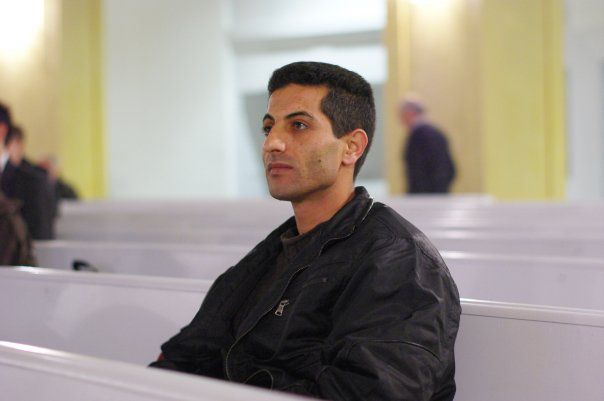The Bethlehem-based camp suffers from a litany of problems, including overcrowding, poor infrastructure, and a lack of schools. One-third of camp residents are unemployed and 15 per cent of homes are not connected to the public sewerage system.
Palestinian Yasser Al Haj, who was born in the camp just over 40 years ago and is the director of Karama, an onsite support NGO for women and children, says the environment can be stifling. “It's just concrete and buildings here. There's no space,” he says. “Just tiny small streets with no green.”

In 2012, Al-Haj came up with an idea of setting up “micro-farms” on the rooftops of the camps. “There was a need and we tried to address it,” he says. “I realised we needed to build our own green houses so we can make an income for the camp and keep the women and children engaged and positive.”
The Karama organisation began by providing families with basic gardening infrastructure and plant seedlings in 2012 – this first stage was funded by a one-time $8,000 donation from a former international volunteer. Al Haj was then able to help set up nine rooftop greenhouses, allowing local families to produce some of their own food and feel empowered in their livelihood.
After the initial set up donation, Karama gained a grant from Lush, the natural handmade cosmetics company, to build more greenhouses and include more families.
Al-Haj says the organisation chooses families that have the greatest financial need for participating in the project. The programme is also specifically aimed at making Palestinian women feel more independent and involved in meeting their families’ needs. Al-Haj says, “We don’t have much food security in the camp. One of the reasons we set up this scheme is to reduce our dependence on aid.”
He adds, “ The greenhouses are helping to change our mentality. The international community makes the Palestinian community think that we need the aid, but in fact the first agricultural civilisation started in Palestine. The first human being to use agriculture lived in Palestine more than 20,000 years ago. So this is in our roots and in our nature.”
Al-Haj says his community “is in danger of losing these fantastic things.” He adds, “You would think it’s not possible to grow vegetables around here, it's a forest of concrete. There's no space and green. But it is possible. We have to grow our own things even if they are very limited. We have to hold on to that.”
The Karama director says the atmosphere in the camp has changed since the greenhouses were installed. There’s a climate of productivity and hope as the families tend to their rooftop gardens, take photos of their progress and sell their wares in the local shop or consume the goods themselves.
The camp’s latest harvests include herbs, tomatoes, cucumbers, chillis and peppers. Al-Haj says, “In the winter, vegetables are very expensive in Palestine. For 1kg of tomatoes, it can be 30 shekels, which is about $20. Some years ago, we used to call tomatoes 'red golden', because you cannot really buy them.”
Al-Haj explains, “In the beginning, I used to give lectures to women about how to live their lives in a healthy way and teach them about their rights. To begin with, the green house idea was implemented simply to help women make their own food and create a little bit of income.
“But later on, I had an idea, 'Why don't I make a store?'. We can collect all the harvests, put them in a store and then sell it. You take what you need, and the rest of it, you just bring it to the store.
“So you can plant a cucumber and bring it to the store, where you can swap it for tomatoes, peppers, chilli, or whatever there is. The principle is give what you have and take what you need.”
Today the Deheishe Refugee Camp is home to 15 greenhouses but this figure is set to grow rapidly following the recent clinching of over $1 million funding in donations for the initiative. Al-Haj says he plans build 190 greenhouses by the end of 2017. By the middle of 2018, he plans to build 250 greenhouses.
The director says, “I can see the difference in the women's eyes. Like yesterday, when we gave them the tubes and hoses for the water system, I could see how they wanted to make their garden perfect. It makes me happy how interested and engaged they are.”
Al-Haj admits that the scheme is “still at the starting point”. He says he dreams of exporting the camp’s food globally within a two-year timeframe, so the refugee community can become more self-reliant. “We need some more time to achieve our dream, but we will,” he insists.
